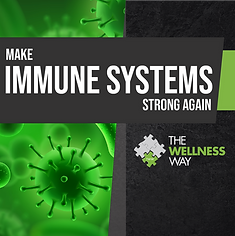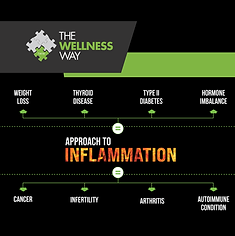How It Works
The Wellness Way-Columbia
Acute Care vs. The Wellness Way
The system of medicine practiced by most physicians is oriented toward acute care, the diagnosis, and treatment of trauma or illness that is of short duration and in need of urgent care, such as a broken bone or appendicitis. Physicians apply specific prescribed treatments such as drugs or surgery that aim to treat the immediate problem or symptom. Much like needing to call “911” when your house is on fire, we've been taught there isn't a problem until it's an emergency.
Unfortunately, the acute-care approach lacks the proper methodology and tools for preventing and treating complex chronic diseases. In most cases, it does not consider the unique genetic makeup of each individual or factors such as environmental exposure to toxins. It also does not incorporate the aspects of today's lifestyle that have a direct influence on the rise in chronic disease in modern Western society. Just like hiring a carpenter to remodel your house before it burns to the ground, you can practice health and change through The Wellness Way-Columbia. If you need relief from back pain, sciatica treatment, or headaches in Columbia, MO, we're here to support you.


We Don't Guess - We Test
The Wellness Way-Columbia approach addresses the underlying causes of disease using a systems-oriented approach and engaging both patient and practitioner in a therapeutic partnership. It is an expansion in the practice of medicine that better addresses the healthcare needs of the 21st century.
By shifting the traditional disease-centered focus of medical practice to a more individual-centered set of symptoms. Our practitioners spend time with their patients, listening to their histories and looking at the interactions among genetic, environmental, and lifestyle factors that can influence long-term health and complex, chronic diseases. In this way, we are supporting the unique expression of health and vitality for each individual.
Common Does Not Mean Normal
Our society is experiencing a sharp increase in the number of people who suffer from complex, chronic diseases such as diabetes, heart disease, cancer, mental illness, hormonal imbalance, and autoimmune disorders.
Types of Stress
Trauma
Events both big and small, that affect your physical body.
Toxins
External substances that invade your body and compromise the function of key systems.
Thoughts
Patterns of beliefs that inform mental and emotional distress, both consciously and unconsciously.



Share On: